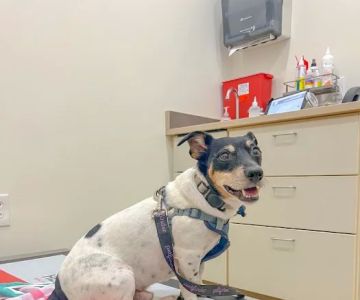- 1-Understanding-Pet-Respiratory-Infections
- 2-Common-Causes-and-Symptoms
- 3-Diagnosing-Respiratory-Infections-in-Pets
- 4-Treatment-Options-for-Pet-Respiratory-Infections
- 5-Home-Care-and-Preventive-Measures
- 6-Real-Case-Study-Successful-Treatment
- 7-Where-to-Find-Expert-Help-Hidden-Brook-Veterinary
1. Understanding Pet Respiratory Infections
Respiratory infections in pets, including dogs and cats, affect the airways and lungs, causing discomfort and health risks if untreated. These infections can range from mild to severe, involving the upper or lower respiratory tract. Knowing how to identify and treat these infections promptly is crucial to your pet’s wellbeing.
Effective treating pet respiratory infections requires veterinary expertise to ensure proper diagnosis and treatment plans tailored to each pet.
2. Common Causes and Symptoms
Respiratory infections in pets may result from bacteria, viruses, fungi, or environmental irritants. Canine infectious respiratory disease complex (kennel cough) and feline herpesvirus are examples of common culprits.
Symptoms often include coughing, sneezing, nasal discharge, difficulty breathing, lethargy, and reduced appetite. Early recognition of these signs allows for faster intervention and recovery.
3. Diagnosing Respiratory Infections in Pets
Veterinarians use physical exams, medical history, and diagnostic tools such as X-rays, blood tests, and cultures to pinpoint the infection’s cause and severity. Accurate diagnosis helps guide effective treatment strategies.
Hidden Brook Veterinary emphasizes thorough diagnostics to ensure no underlying conditions are missed during assessment.
4. Treatment Options for Pet Respiratory Infections
Treatment depends on the infection type and severity. Antibiotics or antiviral medications may be prescribed, alongside supportive care such as fluids and oxygen therapy in serious cases. Anti-inflammatory drugs can reduce airway swelling, easing breathing.
Prompt and appropriate treating pet respiratory infections reduces complications and improves outcomes.
5. Home Care and Preventive Measures
Owners play a key role in recovery by providing a comfortable, stress-free environment, maintaining hydration, and administering medications as directed. Preventing respiratory infections involves vaccination, avoiding crowded pet areas, and minimizing exposure to pollutants.
Routine check-ups with veterinarians help catch early signs and protect your pet’s respiratory health.
6. Real Case Study: Successful Treatment
Max, a six-year-old Labrador, developed a persistent cough after visiting a dog park. Hidden Brook Veterinary diagnosed kennel cough and started a treatment plan including antibiotics and supportive care. Within days, Max’s symptoms improved significantly, illustrating the importance of timely veterinary care in treating pet respiratory infections.
7. Where to Find Expert Help: Hidden Brook Veterinary
For trusted care and advice on treating pet respiratory infections, Hidden Brook Veterinary offers comprehensive veterinary services. Their experienced team provides accurate diagnosis, tailored treatments, and ongoing support to keep your pets healthy and comfortable.
Contact Hidden Brook Veterinary to ensure your pet receives the best respiratory care possible, safeguarding their health through every season.











